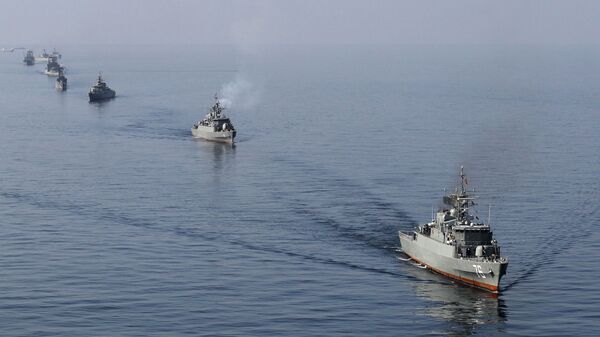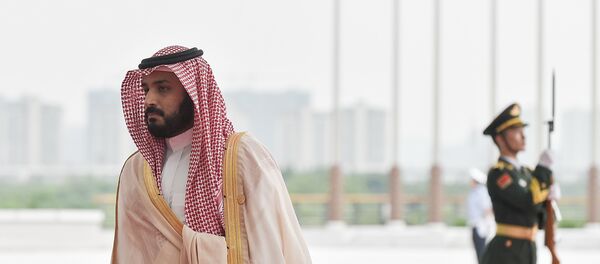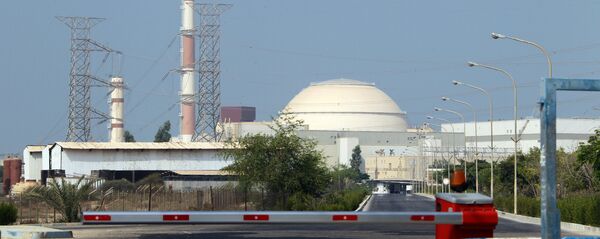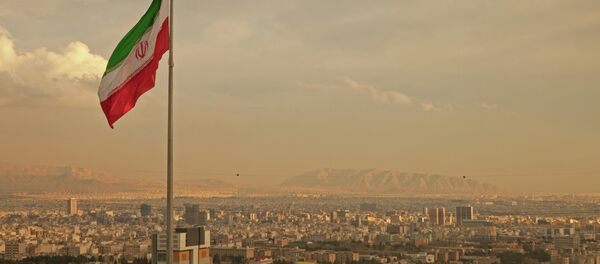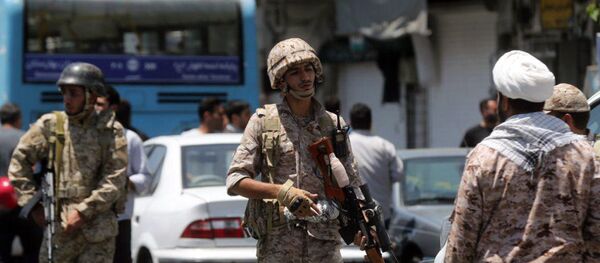US Naval Forces Central Command leader Cmdr. William Urban told reporters in Bahrain on Thursday that the frequent Iranian "provocations" of the US Navy in the Persian Gulf had abruptly stopped in August 2017. Previously, Urban added, the Iranians would occasionally make high-speed approaches towards US ships that were seen as risky and provocative.
"It seems like they've absolutely made a conscious decision to give us more space," he said. "That is definitely a change in their behavior." Urban did not speculate as to why the Iranians had altered their behavior.
The last incident of note happened August 14, when an unarmed Iranian drone shadowed a US aircraft carrier and came within 1,000 feet of its F-18 fighter jets. The US Navy complained that this approach was close enough to endanger US pilots.
Perhaps the most infamous incident in recent years came in January 2016, when the Iranian Revolutionary Guard Corps (IRGC) seized two US Navy riverine boats that had strayed into Iranian territorial waters 400 miles from the Strait of Hormuz.
Ten American seamen were captured and held for 15 hours before being released unharmed. They claimed to have entered Iran's territory by accident due to a navigational error.
Prevailing wisdom in policy circles is that the US and Iran tried to heal the enormous rift in their relationship with the 2015 signing of the Joint Comprehensive Plan of Action (JCPOA), the international deal meant to stymy Iran's nuclear program in exchange for sanctions relief. The thaw turned frosty with the election of US President Donald Trump in November 2016, who has taken a hawkish stance on Iran and has vowed to trash or renegotiate the JCPOA.
But this notion is complicated by the number of "provocative" incidents reported by the US Navy, which logged 23 in 2015 and 36 in 2016. They only logged 14 in 2017 — all in the first eight months of the year — and thus far there have been zero in 2018.
Unlike most countries, Iran has two militaries: the Iranian military, which ultimately answers to President of Iran Hassan Rouhani and his executive branch, and the IRGC, a paramilitary that directly answers to Iran's supreme leader, Ayatollah Ali Khamenei.
These incidents almost always involve the IRGC, not the regular Iranian military. Analysts have suggested that the IRGC's provocations have less to do with Iran-US relations and more to do with the volatile relationship between the hardline conservative Khamenei and the more moderate Rouhani.
For instance, after the nationwide protests that broke out in Iran in late December 2017, the two leaders publicly offered contradictory takes on where the fault lay for the demonstrations taking place.
Khamenei claimed that the protests were the work of foreign agents in Iran. "In the events of the past few days, the enemies of Iran are deploying every means at their disposal, including money, arms and political and intelligence support, to coordinate making troubles for the Islamic establishment," he said January 2.
Rouhani, meanwhile, acknowledged that the protesters had legitimate grievances and tacitly criticized revolution-era leaders like Khamenei for sticking to the same policies they had since the overthrowal of the US-backed Shah in 1979.
"It would be a misrepresentation [of the protests] and also an insult to Iranian people to say [the protesters] only had economic demands," Rouhani stated January 8. "One cannot force one's lifestyle on the future generations… The problem is that we want two generations after us to live the way we like them to."

